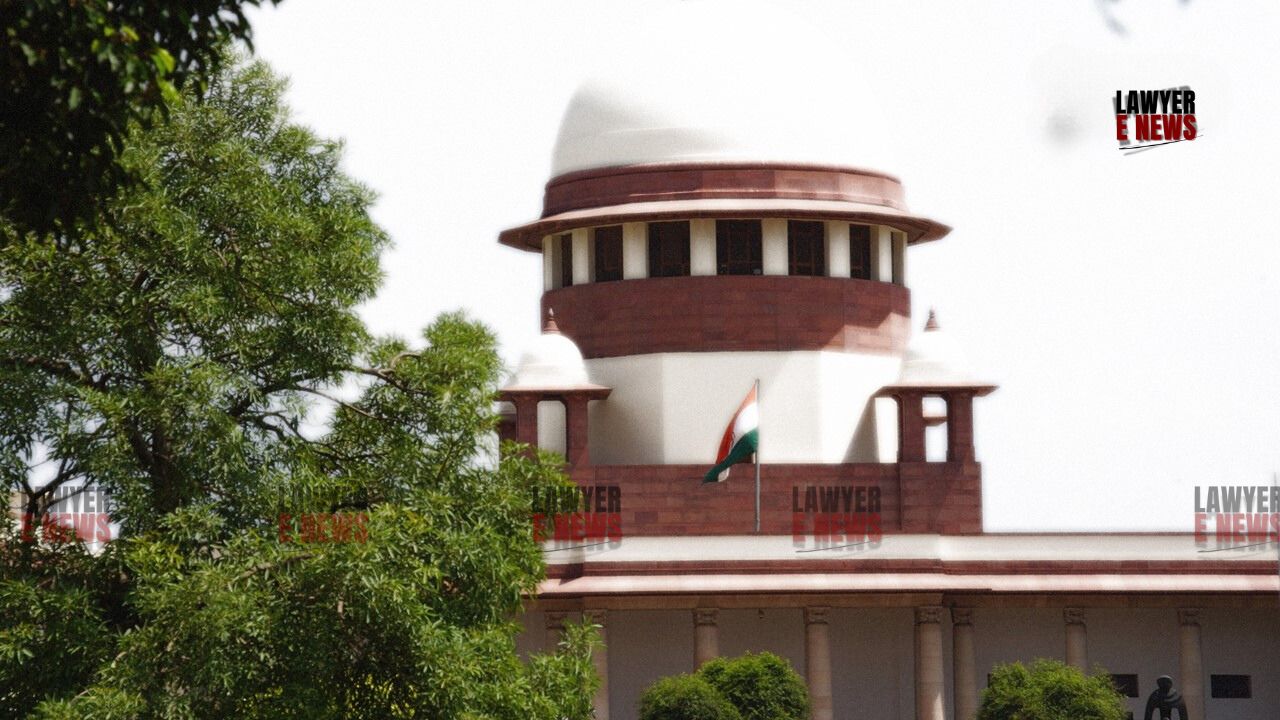-
by Admin
15 February 2026 2:36 AM



Supreme Court of India delivered a pivotal judgment in the case of R. Kandasamy (Since Dead) & Ors. v. T.R.K. Sarawathy & Anr. (Civil Appeal Nos. 3015 and 3016 of 2013), addressing the principles governing the grant of specific performance in contracts for the sale of immovable property. The Court reversed the High Court’s decision to decree specific performance in favor of the buyer and reinstated the Trial Court's dismissal of the suit, highlighting the buyer's lack of readiness and willingness as the crux of its decision.
"Time Was Not the Essence, But Performance Was a Non-Negotiable Obligation" -Supreme Court
The bench, comprising Justice Dipankar Datta and Justice Sanjay Karol, remarked that while the agreement stipulated that time was of the essence, the circumstances of the case led the Court to conclude otherwise. Despite this, the buyer’s inability to perform her contractual obligations rendered her ineligible for specific performance. As the judgment emphasized, “The buyer’s reluctance to complete the sale, despite ample opportunities, demonstrates a lack of readiness and willingness to fulfill her obligations under the contract.
The dispute arose from a January 20, 2005 agreement under which the sellers agreed to sell land with a tenanted building for ₹2.3 crores. The agreement included a condition that the sellers would vacate tenants from the property before delivering possession. The buyer paid ₹10 lakhs as advance and additional sums totaling ₹19 lakhs by the contractual deadline of May 19, 2005, with ₹6 lakhs paid beyond that date.
Disagreements surfaced when the sellers canceled the agreement on February 23, 2006, citing the buyer's failure to pay the balance sale consideration within four months. They refunded ₹25 lakhs to the buyer, who contested the cancellation, claiming that the four-month timeline started after the tenants vacated the property. The buyer subsequently filed a suit seeking specific performance.
The Trial Court dismissed the suit, concluding that the buyer was not ready and willing to complete the transaction. On appeal, the High Court reversed this decision, granting specific performance, observing that the sellers’ conduct and acceptance of payments beyond the stipulated time indicated that time was not the essence of the contract.
The Supreme Court scrutinized the enforceability of the agreement under three main aspects: whether time was the essence of the contract, whether the buyer demonstrated readiness and willingness, and whether the discretionary relief of specific performance was justified.
The Court concurred with the lower courts that time was not the essence of the contract, given that the sellers continued to engage with the buyer and accepted payments after the contractual deadline. However, it emphasized that the buyer’s readiness and willingness were essential prerequisites for specific performance.
The judgment meticulously analyzed the buyer’s actions and found them inconsistent with the obligations under the agreement. Despite knowing by February 2006 that the tenants had vacated the property, the buyer raised demands not stipulated in the agreement, such as requiring an encumbrance certificate from the sellers. The Court noted that this requirement was neither part of the original agreement nor an implied term.
Further, the buyer’s financial incapacity to fulfill the agreement was evident during cross-examination, where she admitted to lacking sufficient funds in her accounts to pay the balance sale price. “The buyer’s financial incapacity and reluctance to close the deal, coupled with her failure to take timely actions, unequivocally demonstrate her lack of readiness and willingness,” the bench concluded.
The Court reiterated that specific performance is an equitable remedy that depends on the conduct of the parties. Citing precedents like Chand Rani v. Kamal Rani and Saradamani Kandappan v. S. Rajalakshmi, it held that discretionary relief should not be granted to a party who fails to demonstrate fairness in their actions or readiness to perform their obligations.
The Court observed that the buyer retained the sellers’ refund demand draft until its last day of validity, without reasonable justification, and failed to address the sellers’ repeated offers to execute the sale deed if the balance amount was paid. This conduct, the Court noted, further undermined her claim.
The Supreme Court allowed the appeals filed by the sellers and a subsequent purchaser, who had acquired the property during the pendency of the dispute. It reinstated the Trial Court's judgment, which had dismissed the buyer’s suit. However, the Court ordered the return of ₹25 lakhs paid by the buyer, with any applicable interest, as the cancellation of the agreement by the sellers was found to be lawful.
The Supreme Court's ruling serves as a reminder of the critical importance of readiness and willingness in suits for specific performance. It underscores that while time may not always be the essence of a contract, the equitable relief of specific performance cannot be granted to a party who fails to demonstrate the ability and intent to perform their obligations. The decision also highlights the need for clarity in agreements and diligent conduct by parties to safeguard their contractual rights.
Date of Decision: November 21, 2024.
